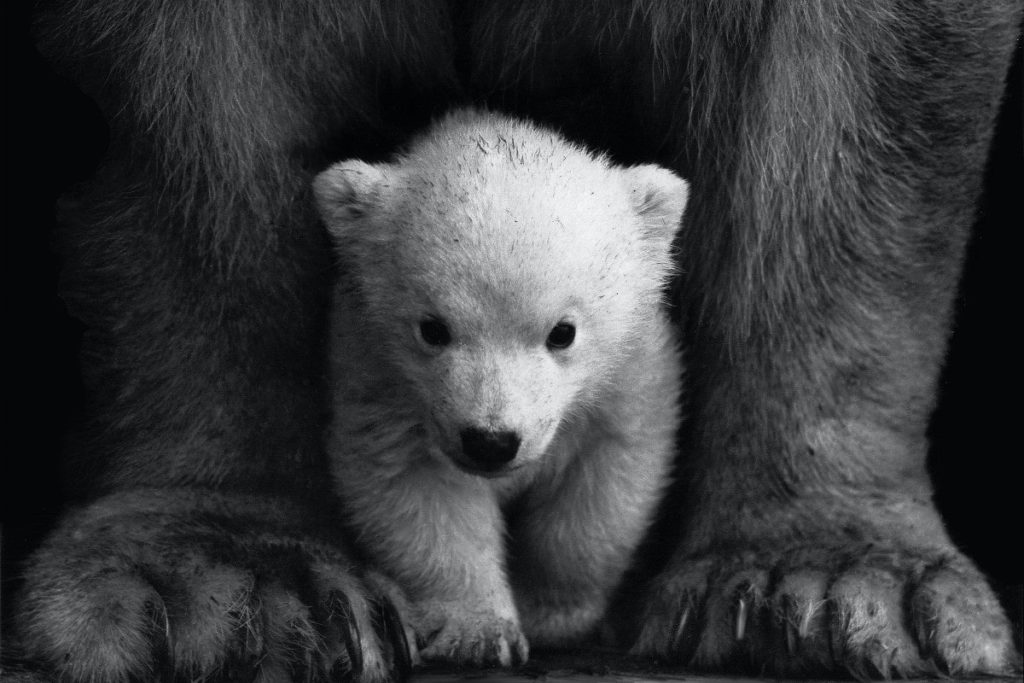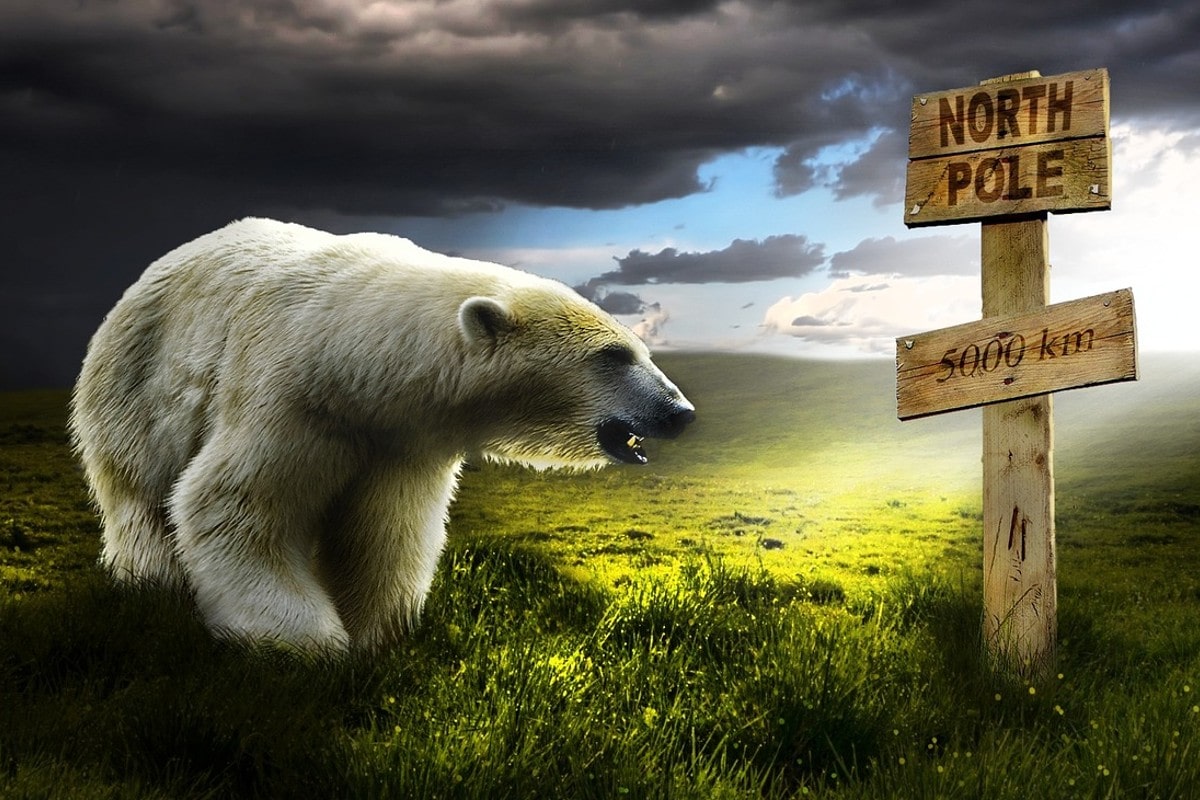Polar bears are one of the most recognisable animals on the planet, but not much is really known about them. They are seen as both majestic and dangerous, so there are plenty of myths and falsehoods passed as truth. One of the most common questions people ask is ‘how much does a polar bear weigh?’ This is only natural since they are such large animals. As with any species, there is variation, even within the same local population.
COMMON NAME: Polar bear
LATIN NAME: Ursus maritimus
POPULATION: 22,000 – 32,000
CONSERVATION STATUS: Vulnerable
Polar Bear Cubs and their Weight
The polar bear is the largest land carnivore on Earth, however, their size as a new-born is disproportionately small.
At birth a polar bear will weigh no more than 700g or 1 pound, 6 ounces. By comparison, human babies weigh on average between 6 and 8 pounds (2700-3600g).
A polar bear cub does not even weigh 1% of their adult size at birth, however, they grow incredibly quickly, often gaining more than 10kg (22lbs) in their first week. Cubs need to develop quickly, as they are born blind, toothless and with a thin coat of fur.
To add to this, approximately 65-70% of polar bear pregnancies result in twins and a further 25% result in triplets. This means the majority of polar bear cubs are born with direct competition in an environment that is difficult to survive in.
Also Read: How Do Whales Sleep?
Male Polar Bears and their Weight
Polar bears follow the same developmental structure as many other species. Males are roughly double the weight of adult females, weighing between 400 and 600 kilograms (882lbs – 1323lbs).
The largest polar bear ever recorded was a male living in Alaska. He died in 1960 and weighed an astonishing 1002kg (2209lbs). That is almost double the average weight of polar bears living today!
Males are also longer in body length than female polar bears, giving them a much more intimidating presence. The rate of aggression is also much higher in males and they may attack other cubs if the opportunity arises.

Female Polar Bears and their Weight
The average weight of a female polar bear is 250 kilograms (551lbs), although they can weigh up to 400kg (882lbs). They are still remarkably small compared to their male counterparts, although this changes towards denning season.
A pregnant polar bear getting ready to hibernate can weigh more than 500kg (1102lbs), almost the same as an adult male. The larger her litter, the more she will weigh.
The cause of this weight change is the excess of fat stores that female polar bears build up to last them through winter and ensure their babies have the best chance of survival. Their milk is so rich in fat (almost 50%) that it is equivalent to double cream. They build their fat stores by hunting animals like seals, walrus and beluga whales which all have a thick layer of blubber under the skin.

